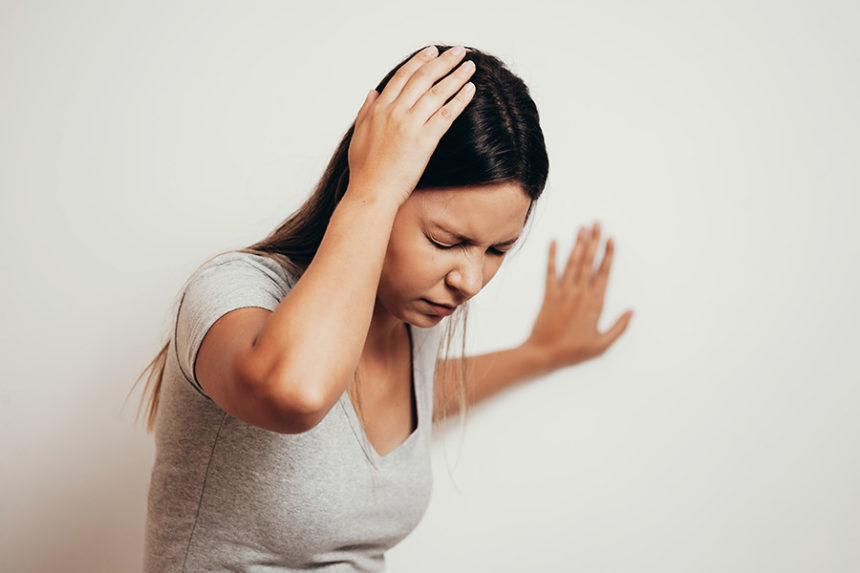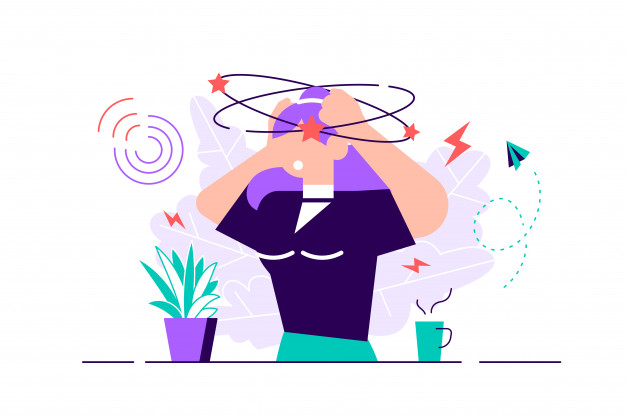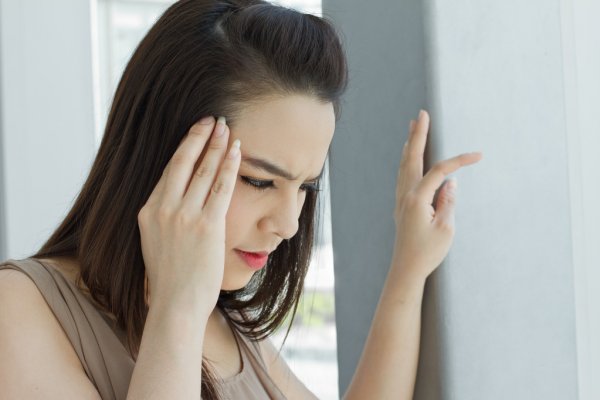Standing up too fast and feeling light-headed is very common among people of all ages. It can happen when you are sitting or lying for long hours and then suddenly you move to stand. This phenomenon is known as dizziness.
When experiencing dizziness, you might feel weakness, confusion, or nausea. It can even blur your vision for a moment or cause you to faint.
If it occurs once in a while, then there is nothing to worry about as health fluctuates from time to time. But if it happens repeatedly, you should worry a bit as dizziness is related to the flow and pressure of your blood circulating in the body. But there’s no need to worry.
In this article, we will discuss:
- Why does dizziness happen?
- Factors that cause dizziness
- How to stop feeling dizzy when standing?
So let’s dive in!
Why Does Dizziness Happen?
When the blood flowing from the venous system can’t push itself in full pressure towards your heart due to the gravity of the ground in response to your quick movement to stand. As a result, it causes the blood not to reach your body’s upper area – the whole head area.
When your heart realises that there is some disturbance in blood flow and has not received enough of it to pump to the upper area of the body, to adjust the supply of blood, it contracts the blood flow in the upper parts of the body.
The heart uses the sympathetic and parasympathetic nervous system to manage the blood’s pump during the contraction process. The amount is not enough, but it still pumps the blood and reaches your brain.
Since the brain did not get proper blood flow due to less output pumped by the heart to the upper area, it disturbs the blood flow and pressure causing you to experience the surroundings spinning and other symptoms of dizziness.
What Are The Factors That Can Cause Dizziness?
Some of the reasons you may feel light-headed when standing up are:
- Orthostatic hypotension
- Heart problems
- Endocrine issues
- Nervous system disorders
- Hormonal Fluctuations
- Dehydration
Let’s look into them in a bit of detail.
Orthostatic Hypotension
It is also called postural hypotension. It drops the blood flow drastically, causing your body to release epinephrine to change the blood’s pressure in the vessels that reach the brain. When blood circulates in less amount and does not regulate itself properly inside the brain for a while, it causes dizziness.
Heart Problems
If your heart is unable to circulate the blood with the required amount of strength, volume, and speed to your brain, it’ll lead you to feel dizzy.
You may experience irregular or slow heartbeats that indicate that there is something wrong with your heart’s valves, making it unable to pump the blood in your body properly.
Endocrine Issues
As the thyroid and adrenal hormones’ conditions affect the sugar levels and blood circulation process, they are highly related to your dizziness sensations.
When there is less amount of thyroid produced in your body and arsenal is insufficient, causing it to vary the production of aldosterone and cortisol. It damages the nerves and signals to lower the sugar level and blood pressure, making you feel dizzy.
Other conditions of endocrine diseases, such as low levels of anaemia, severe iron deficiency, and untreated diabetes, can also cause dizziness.
Note: Hypothyroidism refers to thyroid conditions, hypoglycemia to sugar levels, while Addison’s disease to adrenal hormones. Any change in these can affect the blood pressure flowing through the veins in your body.
Nervous System Disorders
Any disorder causing a change in your body’s nervous system creates blood pressure, and disrupting its circulation can cause you to feel light-headed. Such diseases include Parkinson’s disease, amyloidosis, multiple system atrophy, pure autonomic failure, and Lewy body dementia.
Hormonal Fluctuations
The fluctuations in the hormones during your pregnancy and menopause can also lead to irregular blood flows, causing you to experience dizziness when moving too quickly to stand. It can even cause you to faint.
Dehydration
Drinking less water leads to a lack of fluids in your body. When there is less fluid, it is difficult to circulate your blood in your entire body. And eventually, it will make you feel like spinning the surroundings in your head or dizziness.
However, fluids can also get less in other ways like vomiting, excessive sweating, or anything that can cause you to have less liquid in your body.
How To Stop Feeling Dizzy When Standing?
Following are the practical and effective approaches to get rid of dizziness when standing.
1. Take Frequent Meals
Dizziness can occur to you just after you eat your meal. It’s because your stomach is unable to digest the carbohydrates quickly. These carbohydrates then disrupt the blood circulation in your body.
So, the best way to overcome this problem is to take frequent meals in a small amount at a time. It lets your stomach digest it quickly while making your blood flow smooth in your body while preventing you from stopping feeling dizzy.
2. Stay Hydrated
Keep your body hydrated with water and electrolytes throughout the day. It will help you maintain your body’s fluid levels, making it easy for your blood to flow efficiently in your body.
However, you must not drink a lot of water at a time. It can actually cause you serious illness. Also, avoid too much sweating as that’ll reduce the fluid level in your body.
3. Do Physical Activity
It is one of the easiest and lifetime solutions to maintain your blood pressure and flow. You must keep your body active by light exercises once every day.
However, avoid sitting or lying for long hours as it creates a pool of blood in the areas below your heart while making it difficult to pump blood in the upper areas of the body.
4. Rise Slowly
You must move slowly after lying or sitting for an extended period. In fact, after eating a full meal, take your time to get up. It’ll help to push the pooled blood into your system from your leg muscles before standing up.
Quick movements during menopause can also lead you to feel dizzy or lightheaded. So you must maintain a healthy diet and lifestyle.
It will help you to keep your body active and circulate blood properly – with the right amount and speed. And by time, this sensation of dizziness will go away.
5. Take Recommended Medicines
Many medicines can help your heart to manage the proper blood pressure and its flow in your body. It can lower or increase sugar and blood levels. Some of them can help to let your blood circulate properly in the entire body.
Plus, dizziness treatment can help avoid diseases related to your heart before it gets worse. You can also use compression stockings to regulate your blood in your legs when you stand up.
So, consult a doctor and regularly take the recommended medicine to control the blood pressure and flow in your body.
Summing Up
Treating dizziness can actually help you to improve your overall health. So, keep track of your symptoms, and try to start practising it as soon as possible to avoid being dizzy in the middle of a situation, leading to a dangerous consequence for yourself.
If the symptoms of dizziness are recurrent and you have been losing consciousness from time to time, immediately seek medical advice from your healthcare provider.




Recent Comments